Girls outsmarted boys in Brazil
Florianópolis, the capital of southern Brazil’s Santa Catarina state, was the venue of the 1st FIDE & WFCC World Youth Chess Solving Championships in the Open and Girls categories for participants up to 14, 16 & 18 years. The solving competitions in these six categories were held in the context of the World OTB Championships in the same age and gender categories, during the free day in the OTB events, on 4th November 2024.
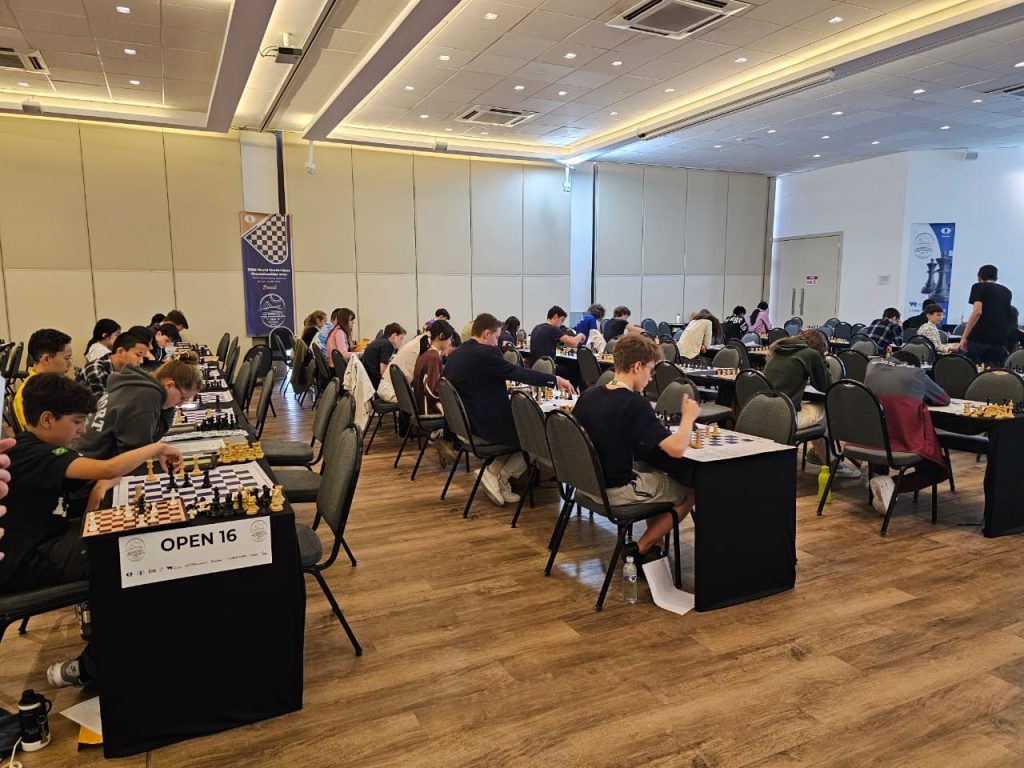
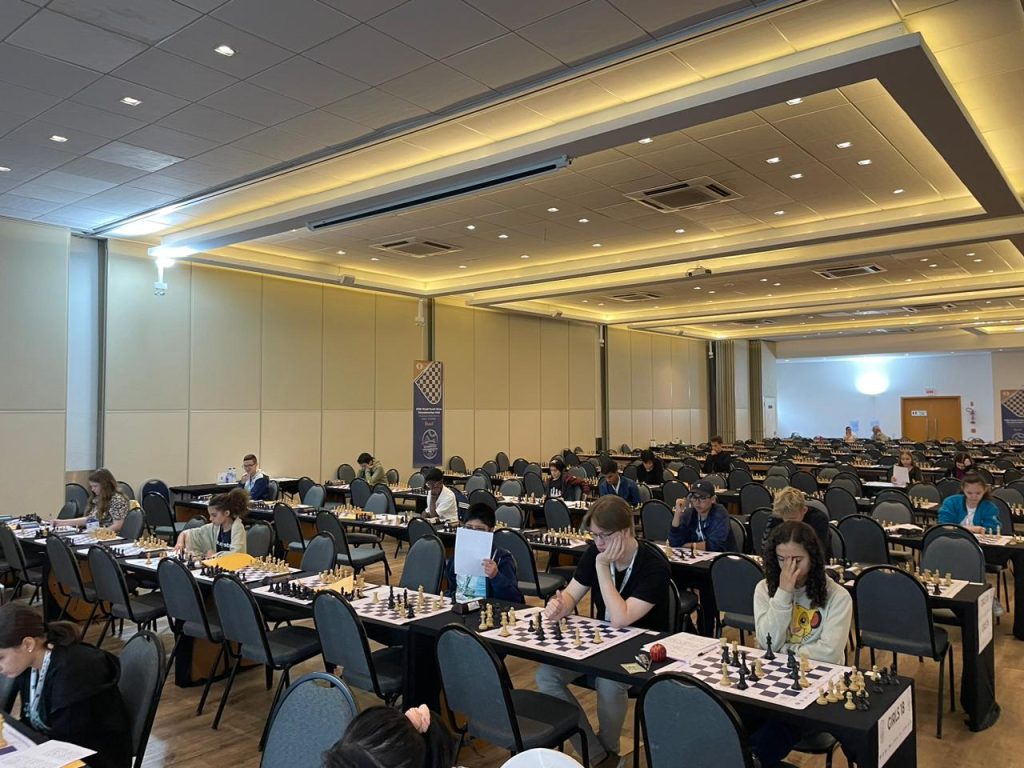
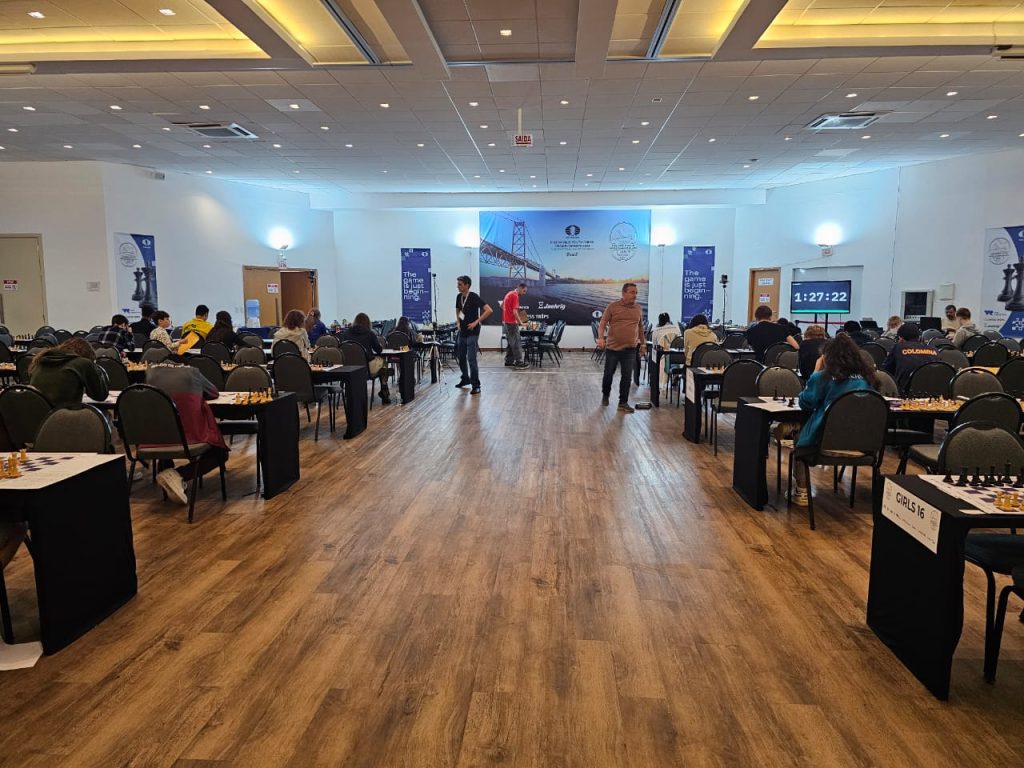
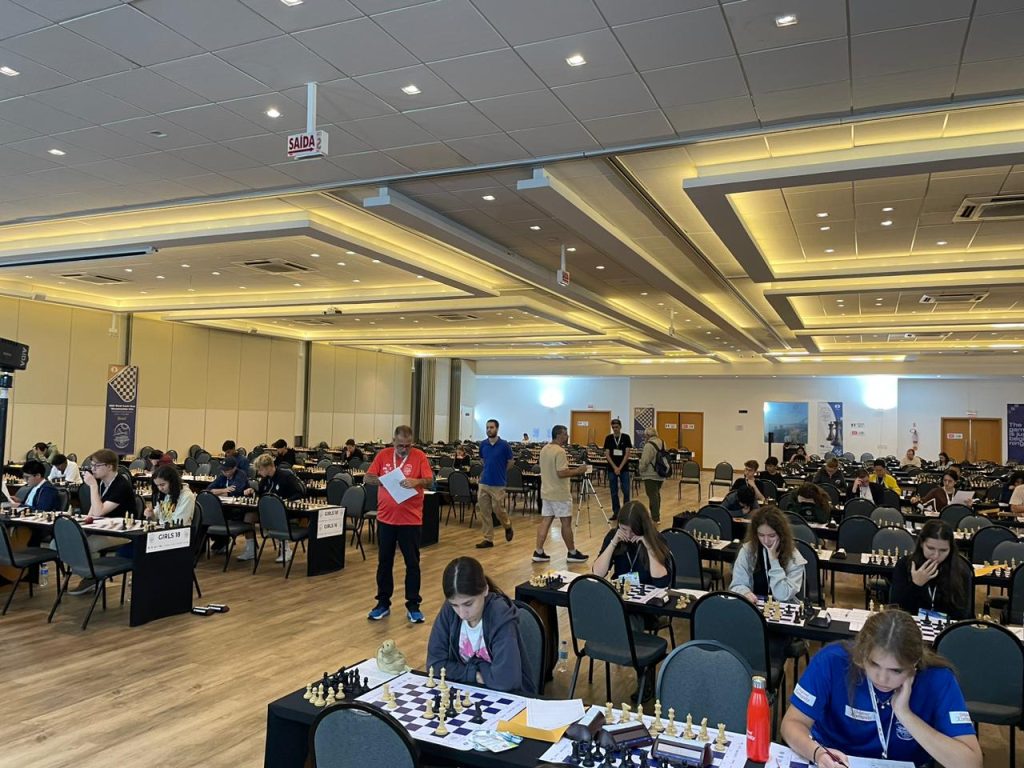
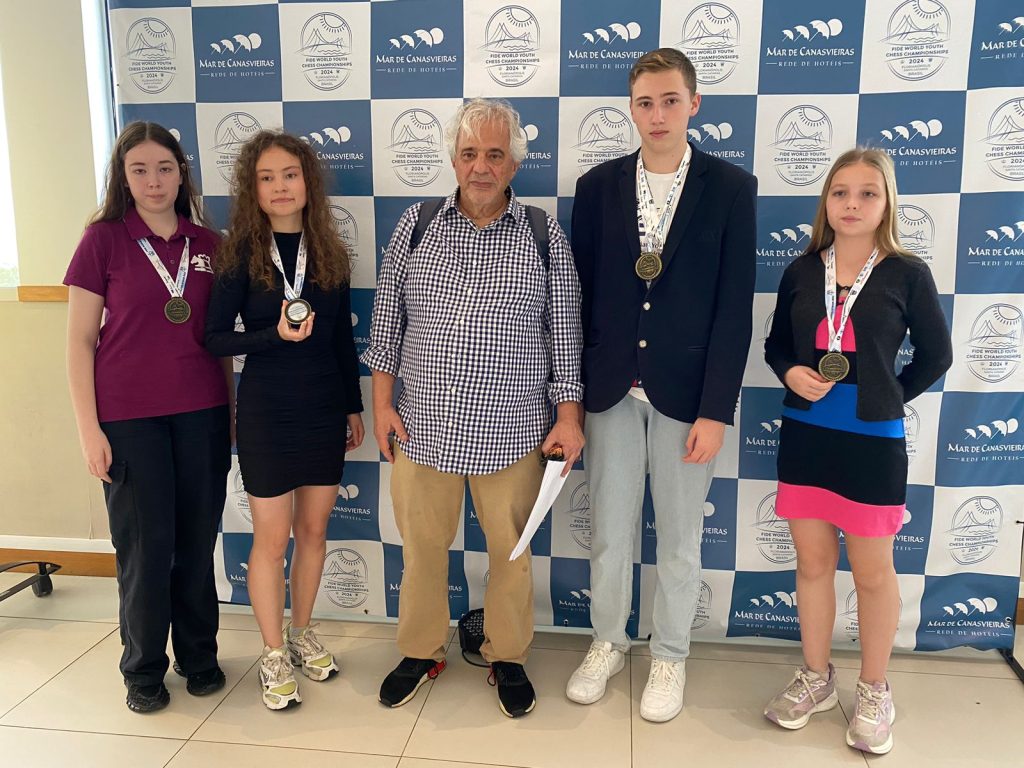
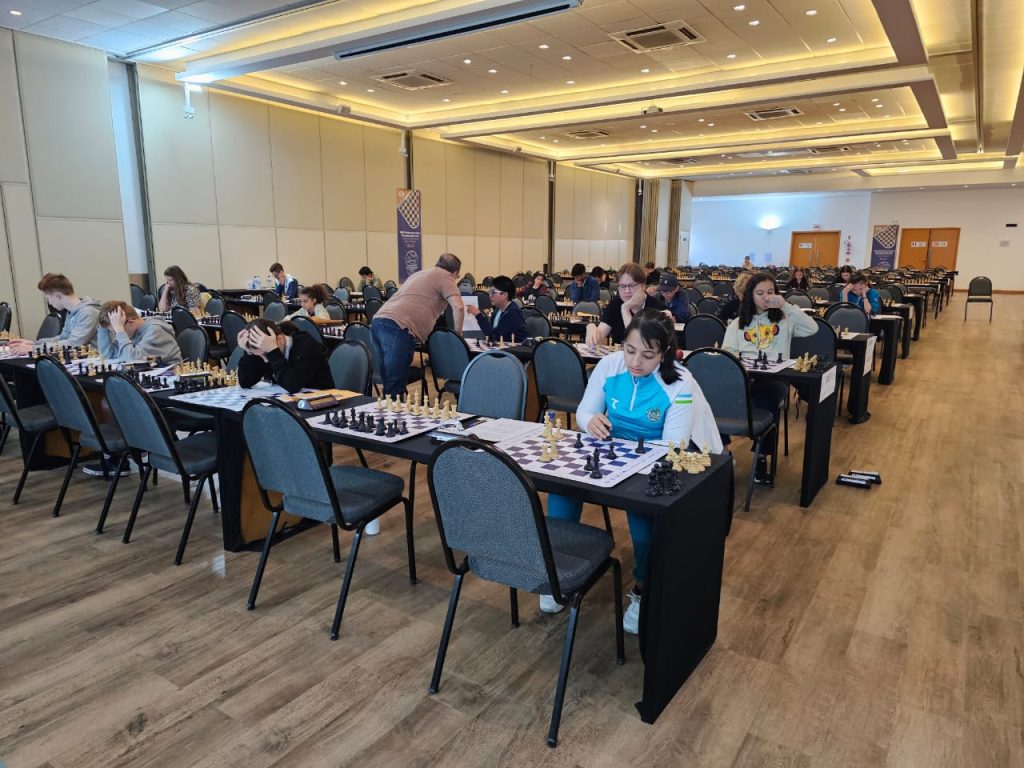
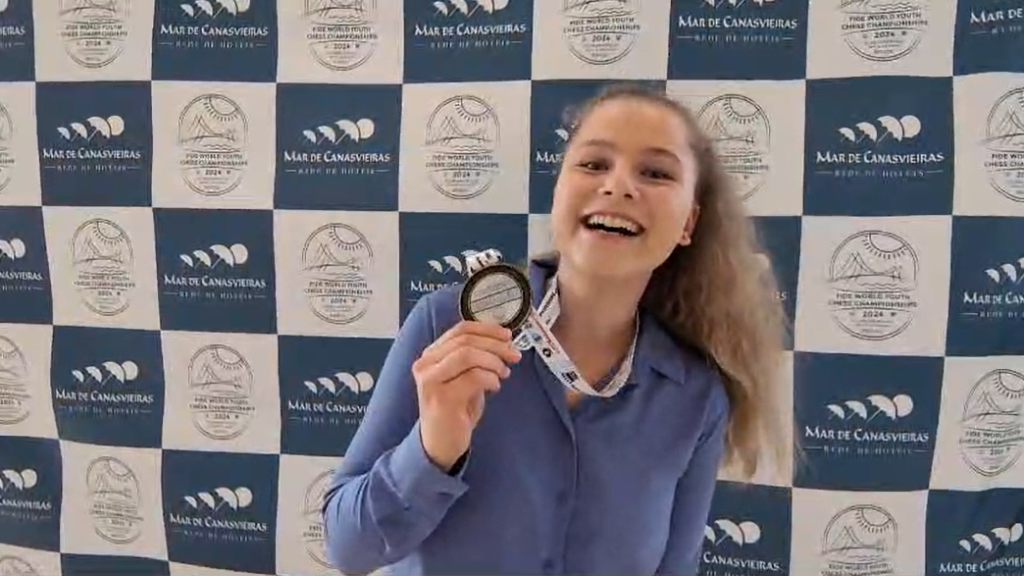
- Open and Girls up to 14: Final standings, Problems, Solutions
- Open and Girls up to 16: Final standings, Problems, Solutions
- Open and Girls up to 18: Final standings, Problems, Solutions
The first solving events in the context of main FIDE championships dated back in 2006, thanks to Georgian Grandmaster of Chess Composition David Gurgenidze and his compatriot Akaki Iashvili, currently at the position of the FIDE Special Tasks Director and Events Commission Chairman. Since then, there were five such competitions, all of them directed by Mr. Gurgenidze, and mostly happening when the big FIDE events were organized in Georgia. This year, for the first time, the solving championships were an official part of a joint project of FIDE and WFCC. Also, for the first time FIDE separated Youth competitions (U14, U16 & U18), from Cadets events (U8, U10 & U12).
From the WFCC side, the solving event in Brazil was realization of a long lasting project, starting year ago and involving many contributors. In the first steps to it, Dinu-Ioan Nicula made proposal for the rules, while Ilija Serafimović and Marcos Roland prepared instructions for writing with illustrative examples. Mohammad Alhallak has done a huge work in preparing registration forms; organizing presentation on the Chess-Results server, and manually adding all participants into it. Anirudh Daga and Marjan Kovačević organized free online solving lessons for all interested.
420 participants from over 50 countries, including many trainers, registered for these online lessons. At the end of his amazing project, Anirudh sent the recorded video materials from all five sessions to all 420 registered participants. It is important to notice that more than a half of them came from Asia (India 106, China 80…), and only 67 from European countries. At the moment, Anirudh is continuing promotion of these online sessions, posting them in the form of series of articles in the well-known ChessBase website.
The media promotion of FIDE & WFCC solving events was as wide and intensive as possible. Several articles were published on the FIDE website and FIDE & WFCC social media; the famous Indian chess promoter Sagar Shah volunteered to create a promo video and the Fujairah team has created another promo video. Posted in the FIDE Facebook channel, their video attracted over 10000 views, more than any WFCC post ever before.
First steps are usually the hardest, and the Brazilian event was far from being an exception. As experience has showed, the older age categories of chess players (and their trainers!) are much more oriented toward the OTB chess results, and less ready to experiment in the field of chess composition during an important tourney. The decreasing of numbers of participants with their age (14-16-18) has proved it once again.
Another obstacle was communication with the main chess organizers away from Europe. Even the Brazilian team of three WFCC engaged organizers was almost 900 km away, coming from Rio in the eve of event. Ricardo Vieira was the director of the solving competition, with Bruno Perez as his assistant. Marcos Roland took many different roles before and during competition, including a series of solving events and free online lessons across Brazil. Dinu-Ioan Nicula selected the three sets of problems and endgames, while Axel Steinbrink and Miodrag Mladenović were giving important technical help in the use of STM and posting results in WFCC Solving Portal.
At the end, 63 out of 87 registered participants took part. This number didn’t reflect all preparatory efforts, but the quality was better than quantity. With 8 tasks to solve in 90 minutes it was good no participant ended with zero in the final standings. The most impressive results were achieved by the girls, especially in the youngest age category, where they completely overshadowed boys of the same age.
Unofficial results were sent by email to the participants the same night, and the protests were replied by sending the scanned solving sheets. So, in the morning of 5th November the winners of the 1st WYCSC were crowned.
Before turning thoughts to 21st November and the 1st World Cadets Chess Solving Championships (U8, U10 & U12) in Montesilvano (Italy), you may read the report from Florianópolis, by Marcos Roland, one of the main organizers of the 1st WYCSC:
⇨ Solving in Floripa: 1st WYCSC reapproximates chess composition and OTB chess
I experienced one of the greatest expectations of my life in the days leading up to the first world chess solving championship for the youth (WYCSC; U-14, U-16 and U-18 categories), in the very friendly and welcoming city of Florianópolis, in the south of my country. The holding of this event represented the culmination of almost two decades of efforts to bring together chess problemists and chess players, represented by their respective federations, the World Federation for Chess Composition (WFCC) and the Fédération internationale d’échecs (FIDE).
The event took place on a free day in the context of the World Youth Chess Championship, U-14, U-16 and U-18 categories, and the solving competition was divided into the same categories. Girls could choose to be classified in their own group (G) or in the open group (O), together with the boys. None of the girls opted for the open group, all preferred to compete in their own group. Interestingly, they missed a good opportunity to make it explicitly clear that, possibly, gender differences in chess are counting less, because, in the end of the day, the girls practically dominated the U-14 category, in which they placed three of the four best scorers, shared the honors in the U-16 category, in which they placed three of the five best scorers, and only came behind the boys, but with some excellent performances, in the U-18 category!
My country was given the honor and also the great responsibility of hosting this historic event, and I confess that I was nervous and worried when I arrived in Floripa, a few days before the solving event. Local organizers had no experience in this type of side event, and difficulties were expected. The director of the main event, the well-known Brazilian chess organizer and promoter Kaiser Luiz Mafra, whom I thank here, did everything in his power to provide us with suitable conditions. However, the venue for the event, which had been chosen long before the agreement between the WFCC and FIDE was signed, had certain physical limitations. I encountered some difficulties in carrying out my duties, one of them being the confirmation of the registrations for the event.
However, I believe that, in the end of the day, everything worked out. Although the number of participants was lower than we had hoped, this was probably due more to a change in expectations of parents or coaches regarding the level of difficulty of the problems that would be proposed to the participants. One coach of a national team even told me that he would not enter his young players in the competition because there was too little time for adequate preparation, but that he would like to have some technical support in the future to instruct young chess players from his country in the field of chess solving.
The closing – prize giving ceremony was like a synthesis of the ups and downs that characterized the holding of this first WYCSC. It was held in the cramped lobby next to the playing hall. In this sense it was a modest and poor ceremony, but at the same time it was a meeting of organizers and young people and their coaches and relatives, all very pleased to have participated in an event of high technical level. Therefore, I believe that the medals, distributed in such a simple and improvised way, with the help of an 8-year-old boy, Gabriel Henry, will be pleasant memories for those who received them. At least, that was the feeling I had when shaking hands with those people and taking pictures with them. A memorable moment in my life.
Marcos Maldonado Roland, WFCC delegate of Brazil





